People
Faculty
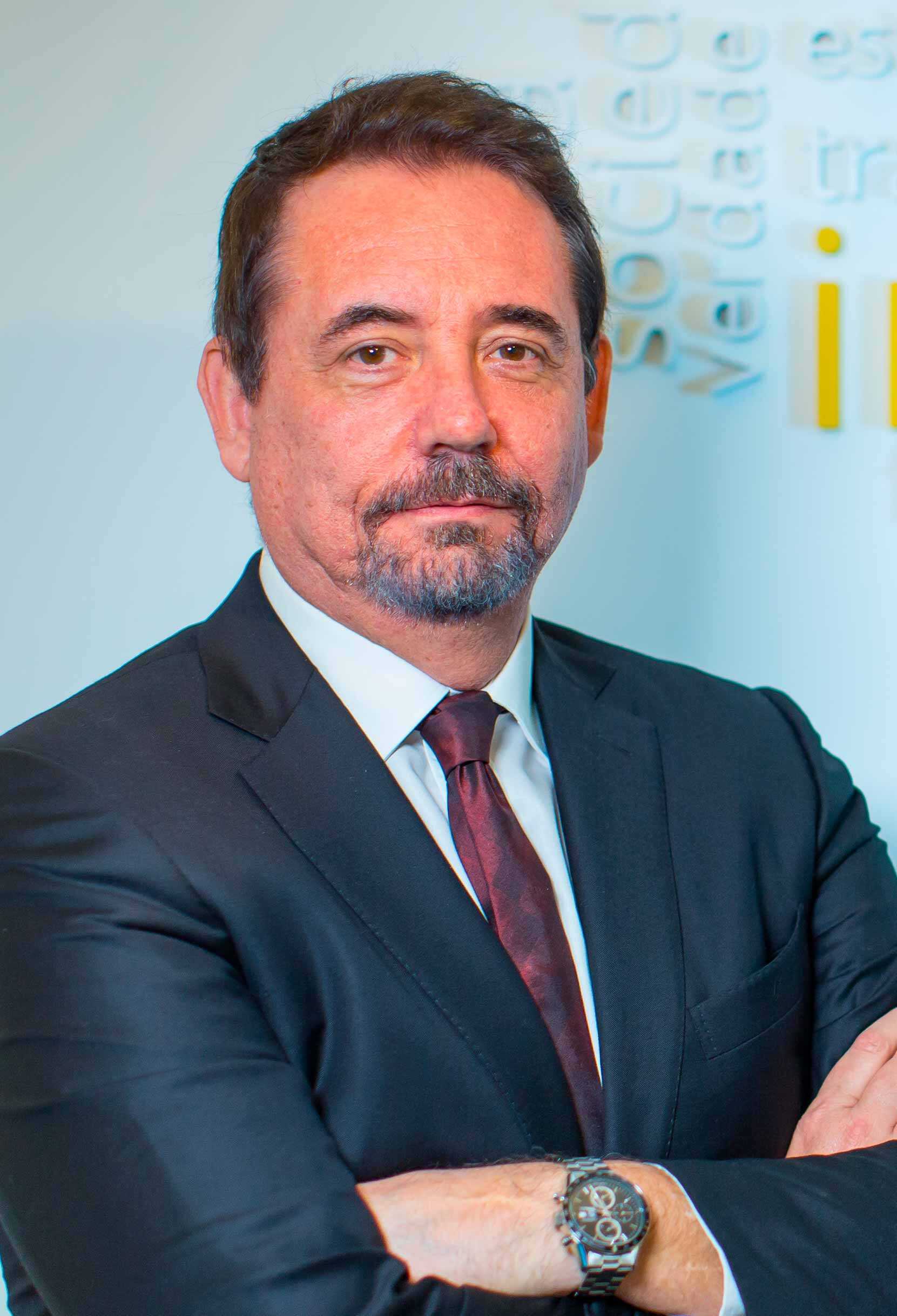
Marco Aurélio Ruediger
Marco Aurelio Ruediger is the Faculty Sponsor of SICSS FGV-DAPP Brazil. He holds a PhD in Sociology and is the Director of Public Policy Analysis of Fundação Getulio Vargas (FGV/DAPP). His main fields of interest are political sociology, communication, social networks, and technological innovation and its impacts on democracy. He is a consulting member of the D4D initiatives of the National Democratic Institute and Social Science One. He is currently leading the creation of the School of Communication, Media and Information of Fudação Getulio Vargas and of the project “Digitalization and Democracy in Brazil”, carried out with the support of the Ministry of Foreign Affairs of Germany and of the German Embassy in Brasília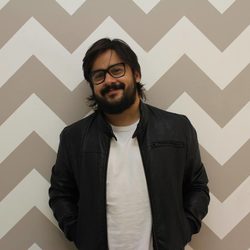
Tiago Ventura
Tiago Ventura is a Ph.D. Candidate in Government and Politics at the University of Maryland, College Park (UMD), and an alumni of SICSS Princeton in 2019. Tiago is a researcher on comparative politics and computational social science, with a particular focus on political violence in Latin America and political communication. During the Winter and Spring of 2021, He will be the Young Talent fellow in Computational Social Science at FGV Rio de Janeiro. Tiago is also a researcher at the Interdisciplinary Laboratory for Computational Social Science at UMD.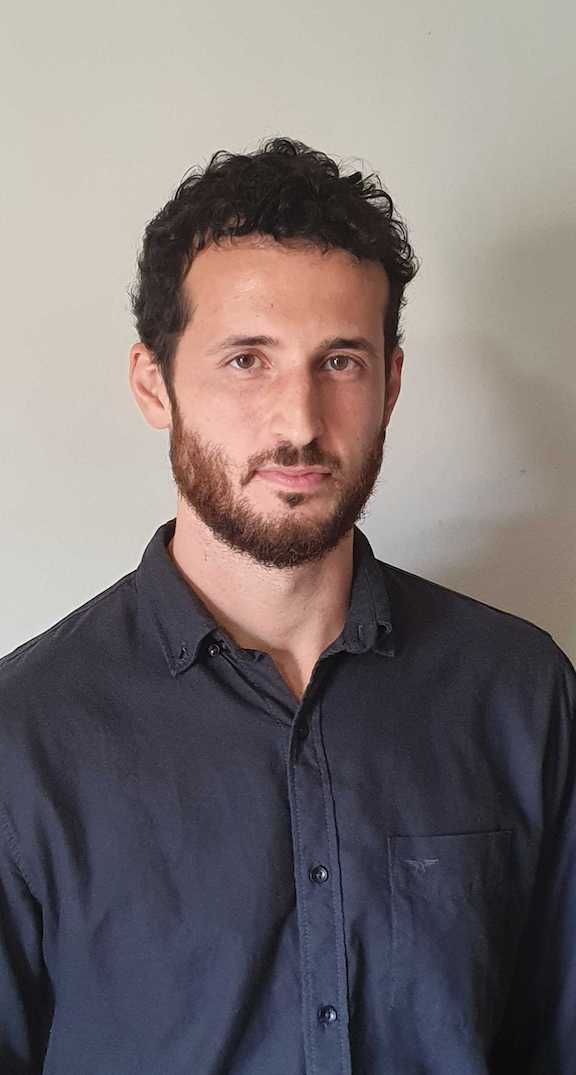
Amaro Grassi
Amaro Grassi is a Ph.D. Candidate in Political Science at IESP-UERJ, and Chief Researcher at The Department of Public Policy Analysis of Getulio Vargas Foundation (FGV/DAPP)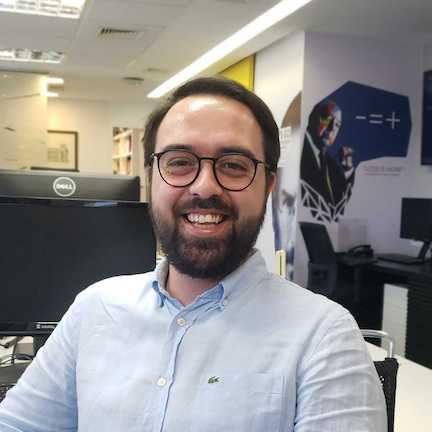
Danilo Carvalho
Danilo Carvalho is a Master student in Informatics at the Federal University of Rio de Janeiro (Brazil) and coordinator of Data Science at the Department of Public Policy Analysis of Getulio Vargas Foundation (Brazil). He works with the monitoring of online public debate, automated behavior detection, information spreading, and machine learning in applied social sciences.Speakers
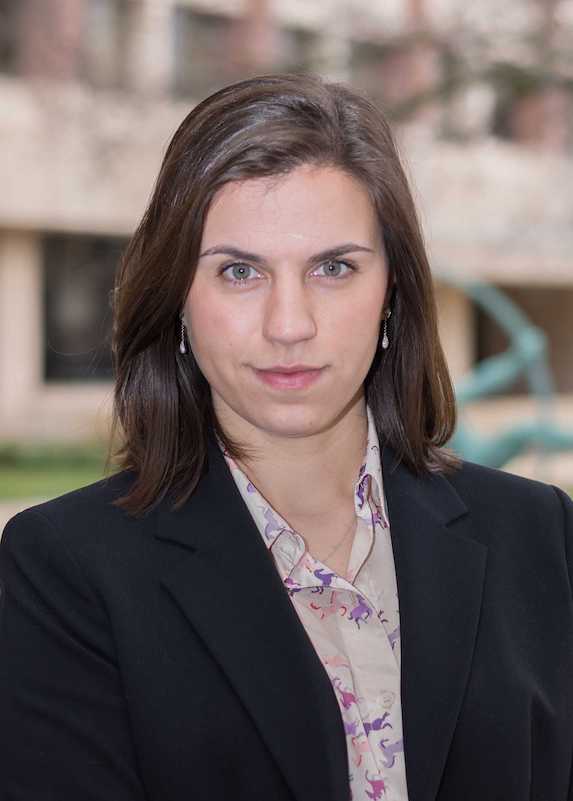
Patricia Rossini
Patricia Rossini is a Derby Fellow in the Department of Communication and Media at the University of Liverpool. Her work is primarily focused on digital threats to democracy, such as uncivil and intolerant online discourse and misinformation on social media and messaging applications. Her research has been funded by social media platforms such as WhatsApp (PI), Twitter, and Facebook (Co-PI). She is also co-PI on a Knight Foundation grant to study digital campaigns in the 2020 US election. Prior to joining the University of Liverpool, Dr. Rossini was a postdoctoral research fellow in the School of Information Studies at Syracuse University (USA). She has a Ph.D. in Communication from the Federal University of Minas Gerais, Brazil.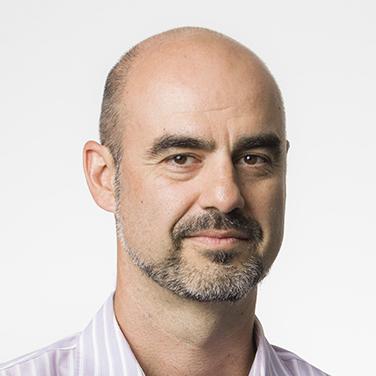
Cezar Zucco
Cezar Zucco is a Political Scientist and Associate Professor at FGV/EBAPE, a school of business and public administration in Rio de Janeiro. He was previously Assistant Professor at Rutgers, and has held visiting appointments at Nuffield College, Princeton, Yale, and IUPERJ (currently IESP). His work focuses on Latin American politics, and He has written on executive-legislative relations, political parties, voting behavior, and the politics of public policy.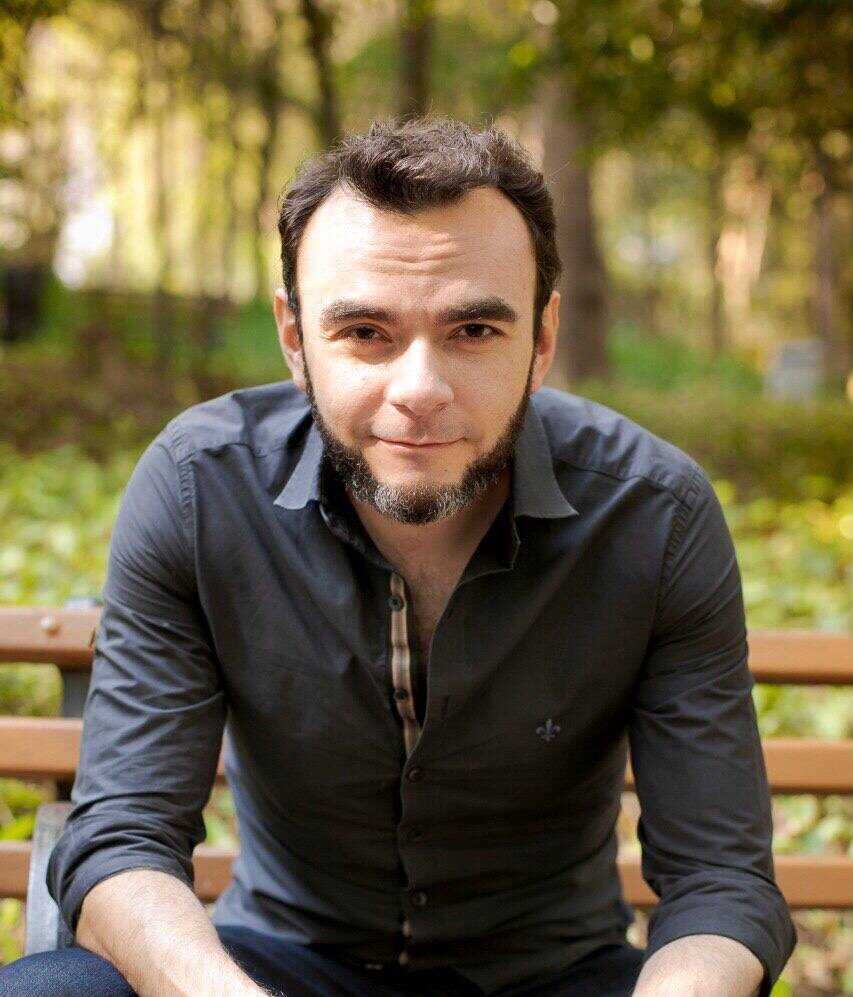
Thiago Marzagão
Thiago Marzagão is a data scientist. He uses machine learning to automate the detection of corruption in the Brazilian government. He got his Ph.D. from the Ohio State University in 2014.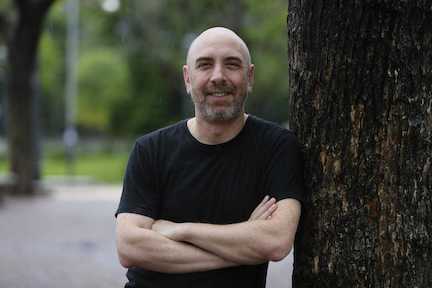
Ernesto Calvo
Ernesto Calvo is Professor of Government and Politics at the University of Maryland and Director of the interdisciplinary Lab for Computational Social Science. His research focuses on the study of comparative political institutions, political representation, and social networks. He is the author of Non-Policy Politics (Cambridge U.P, 2019) with M. Victoria Murillo; Legislator Success in Fragmented Congresses in Argentina (Cambridge U.P: 2014), and over 70 publications in Latin America, Europe, and the United States.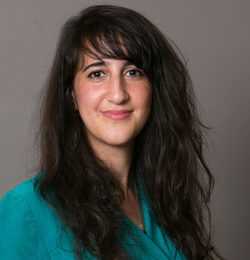
Rochelle Terman
Rochelle Terman is an Assistant Professor in the Department of Political Science at the University of Chicago. She specializes in international relations, with an emphasis on international norms, human rights, and the Muslim world. She teaches computational social science at both the undergraduate and graduate levels, including Computational Tools for Social Science. She is a certified instructor with Software Carpentry and Data Carpentry.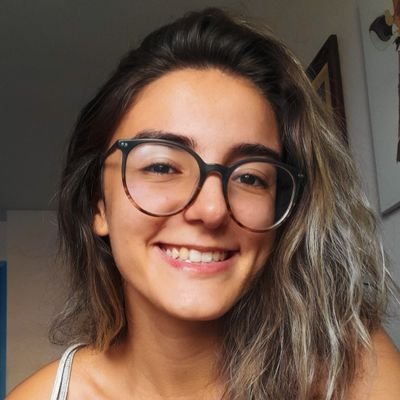
Fernanda Scovino
Fernanda Scovino é cofundadora da Base dos Dados e trabalha como Coordenadora Técnica de Governança de Dados na Prefeitura do Rio de Janeiro. Atualmente é também conselheira executiva do Laboratório de Inovação em Políticas Públicas e membro do GT da Sociedade Civil para Governo Aberto da CGU. Formada em Matemática Aplicada pela FGV-EMAp, trabalhou com ciência de dados na Impulso-gov, Elogroup e CTS/FGV.
Cecilia Olliveira
Cecilia Olliveira is an investigative journalist who focuses on drug and arms trafficking and violence. In 2016, frustrated with the lack of publicly available data, she began mapping every shooting in Rio de Janeiro. This idea turned into Fogo Cruzado, an open data platform on armed violence that is spreading to every major city in Brazil. She was the only Latin American finalist in Reporters Without Borders’ 2020 Press Awards, which celebrates intrepid and courageous voices in global media.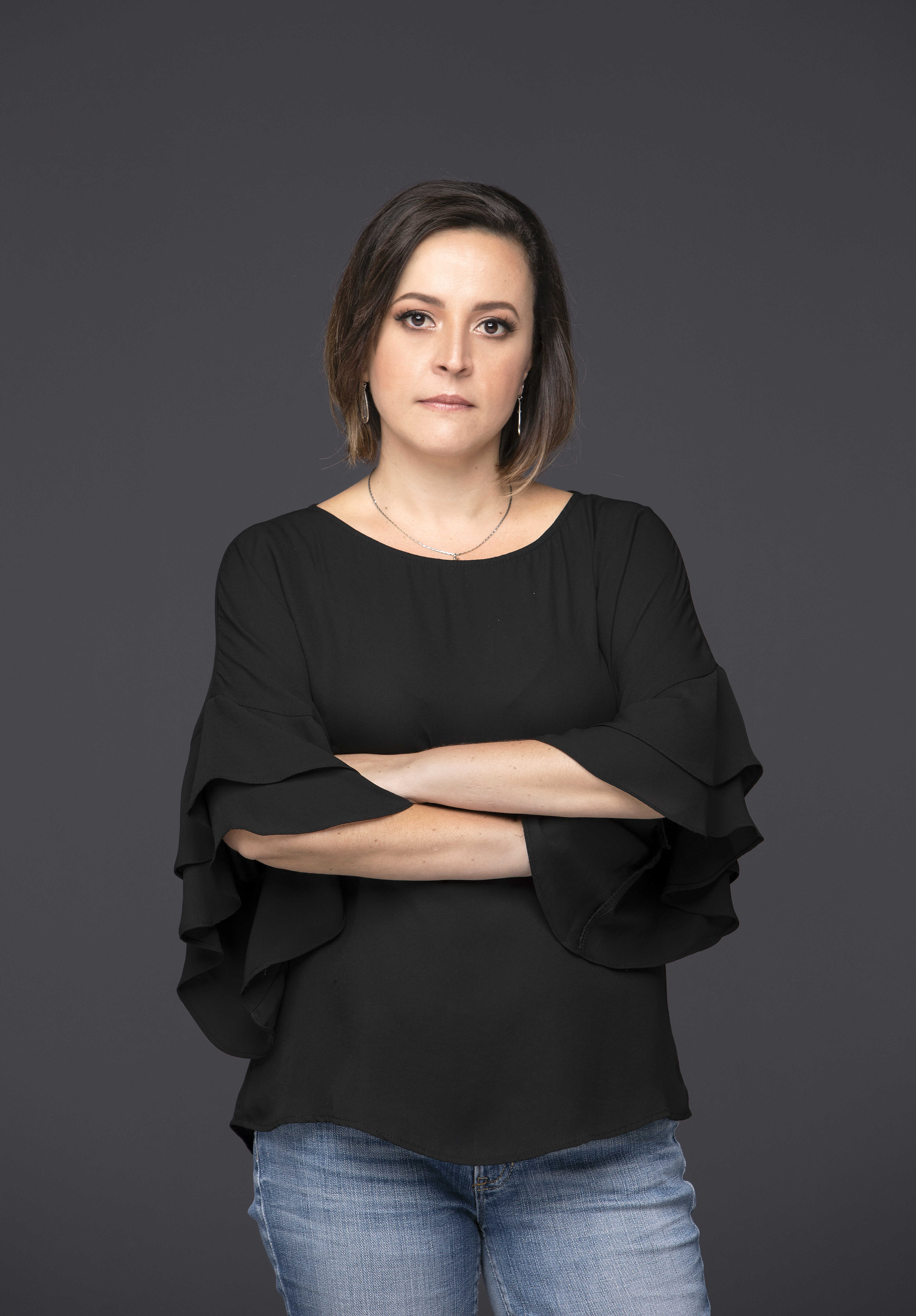
Cristina Tardáguila
Cristina Tardáguila is the International Fact-Checking Network’s Associate Director and also the founder of Agência Lupa, the first fact-checking initiative in her country, Brazil. As a journalist, she has worked in some of the major Brazilian media outlets: O Globo, Folha de S.Paulo and revista piauí. She graduated in journalism in Rio de Janeiro, got her master degree in Madrid and her MBA in Digital Marketing again in Rio. She has published two books: “A Arte do Descaso” (in 2016), about art crimes - and “Você foi Enganado” (2018), about presidential false claims. She’s been to TEDx’s red carpet twice and won the 2018 elPeriodico’s/Grupo award in 2018 in Spain as the best journalist of the year. Tardaguila has been nominated for the Gabriel García Marquez Award, in Colombia, and the Comunique-se Awards, in Brazil. Both in their innovation categories. She now coordinates the largest fact-checking collaborative project: the #CoronaVirusFacts Alliance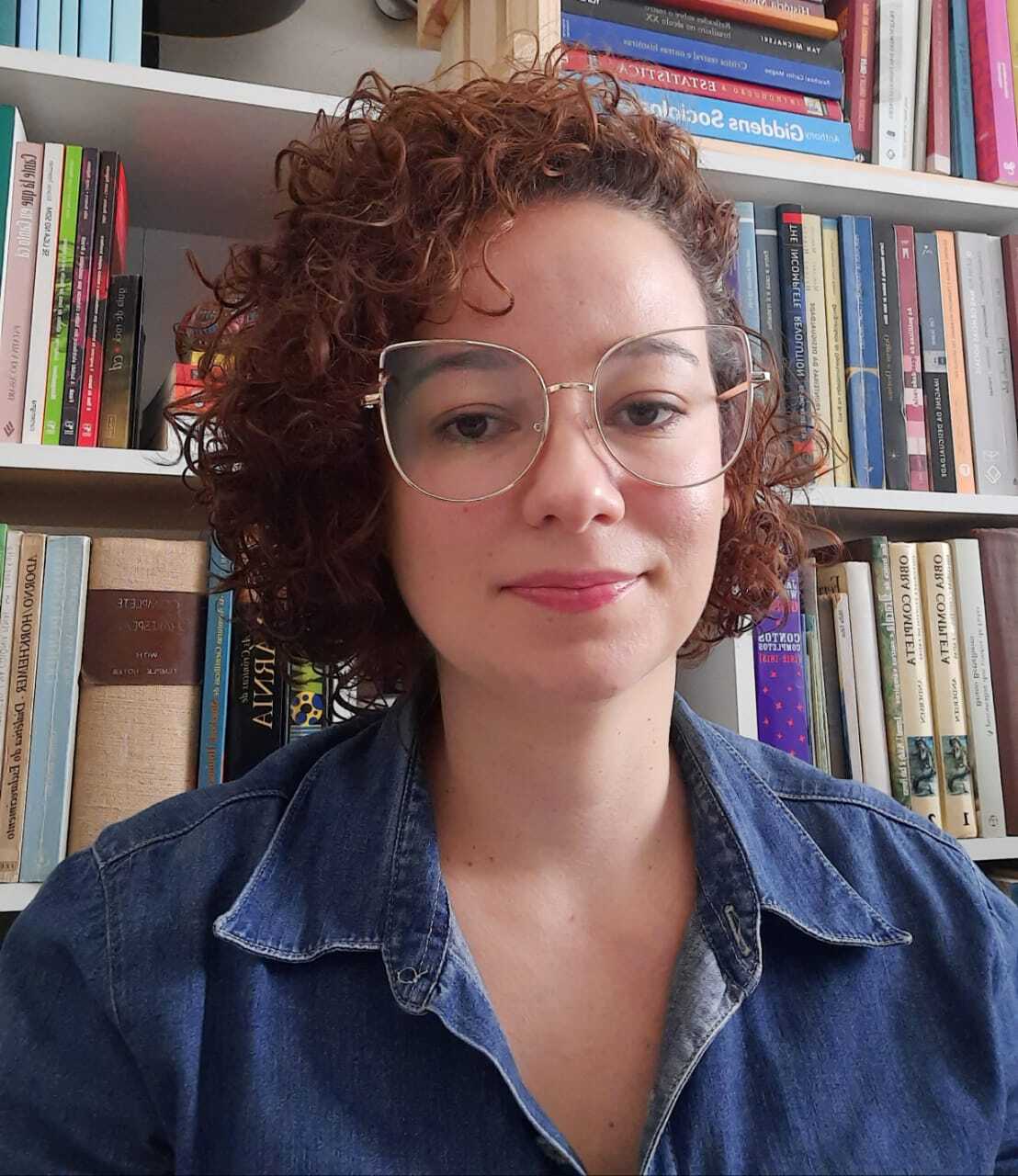
Natália Leão
Natália Leão is the Head of the Research and Data Department at Gênero and Número, and a Ph.D Student in Sociology at Iesp-Uerj. She works on issues of gender, race and class inequalities, based on data collection and analysis, since 2007.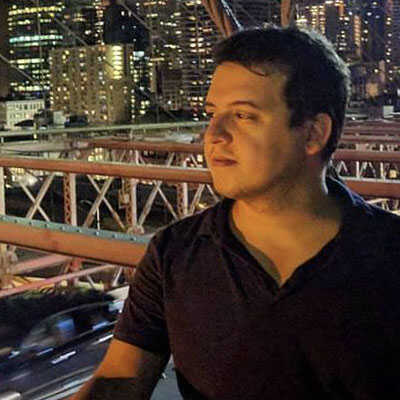
Daniel Trielli
Daniel Trielli is a PhD student at the Media, Technology and Society program at Northwestern. He is researching computational journalism and how news reaches the public in our increasingly algorithmically-defined world.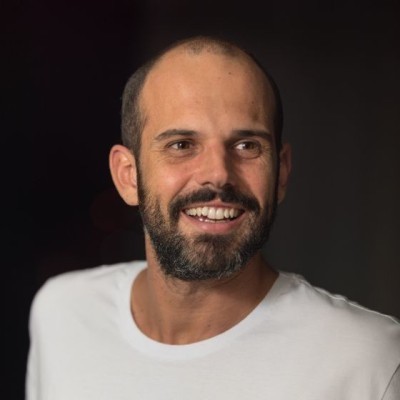
Henrique Lorea
Henrique is currently a Data Analytics Tech Manager at PicPay, where he leads a team of data analysts whose purpose is to generate value for business with data. Prior to his 5-year experience in financial services, Henrique has worked as a data scientist at Pensa, a big data analytics initiative from Rio City Hall, focused on solving urban problems with data. He holds a Bachelor's degree in Architecture and Urbanism and a Master's degree in Urban and Regional Planning.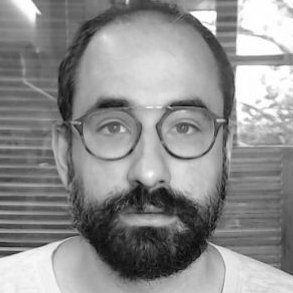
Daniel Mariani
Formado em ciência biológicas em 2009 pela USP. Trabalhou em estudos genéticos e de transtornos psiquiátricos no Hospital das Clínicas até 2015 quando iniciou carreira no jornalismo de dados no Nexo Jornal. Em 2017 foi para a Folha de São Paulo onde formou o DeltaFolha editoria focada em dados do jornal.Teaching Assistants
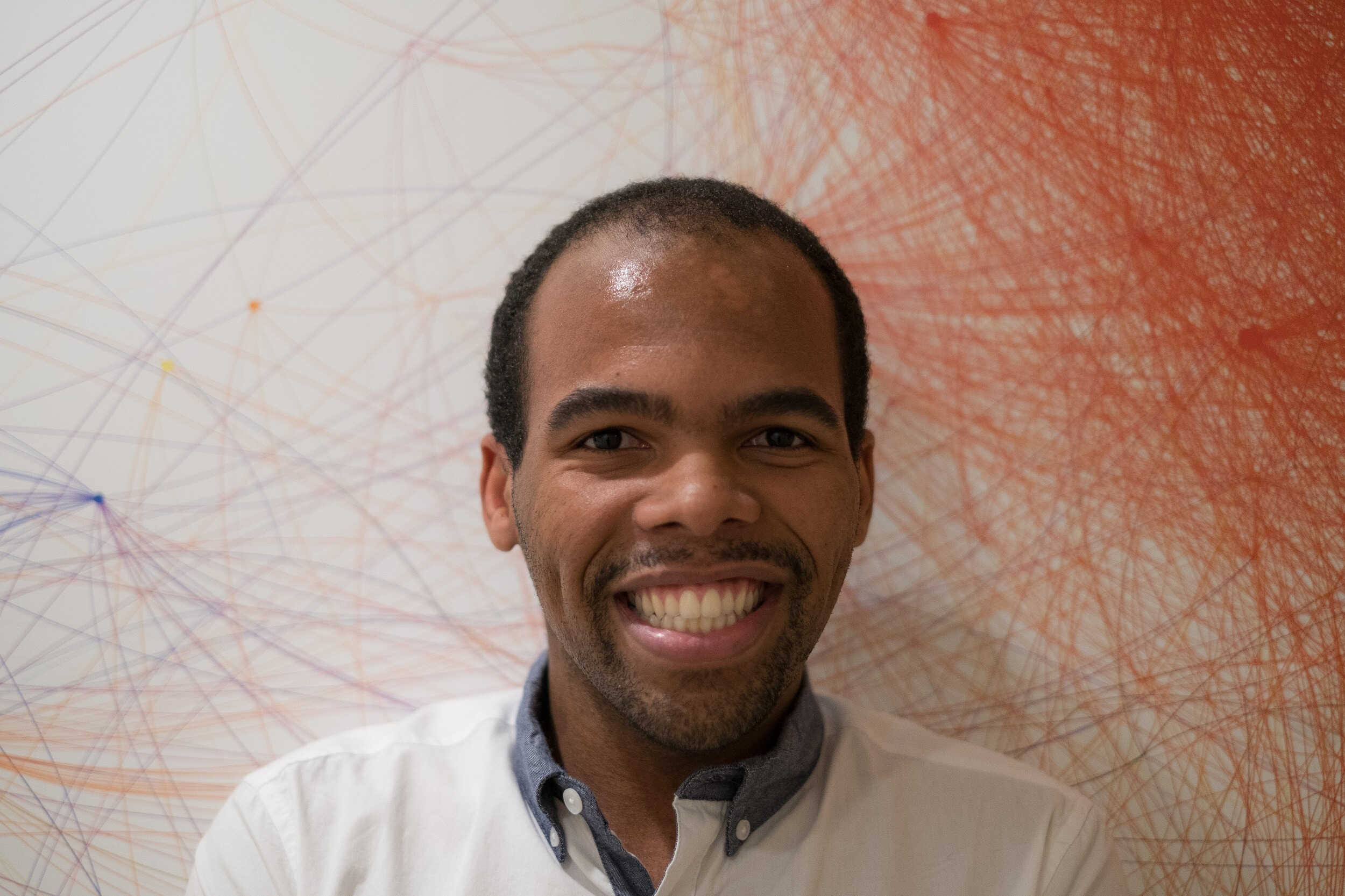
Lucas Roberto
Lucas Roberto is a Master student in Informatics at the Pontifical Catholic University of Rio de Janeiro (Brazil), where he researches natural language processing. He is a data scientist at the Department of Public Policy Analysis of Getulio Vargas Foundation (Brazil), where he works with machine learning for developing tools and procedures for social media analysis.
Polyana Barbosa
Polyana Barboza is a researcher at the Department of Public Policy Analysis of Getulio Vargas Foundation (Brazil), where she works with data extraction and analysis from social media. She has a Bachelor’s degree in Applied Mathematics by Getulio Vargas Foundation and is a Master student in Informatics at the Pontifical Catholic University of Rio de Janeiro (Brazil). Her research interests are social network analysis in digital media and multi-agent systems in software engineering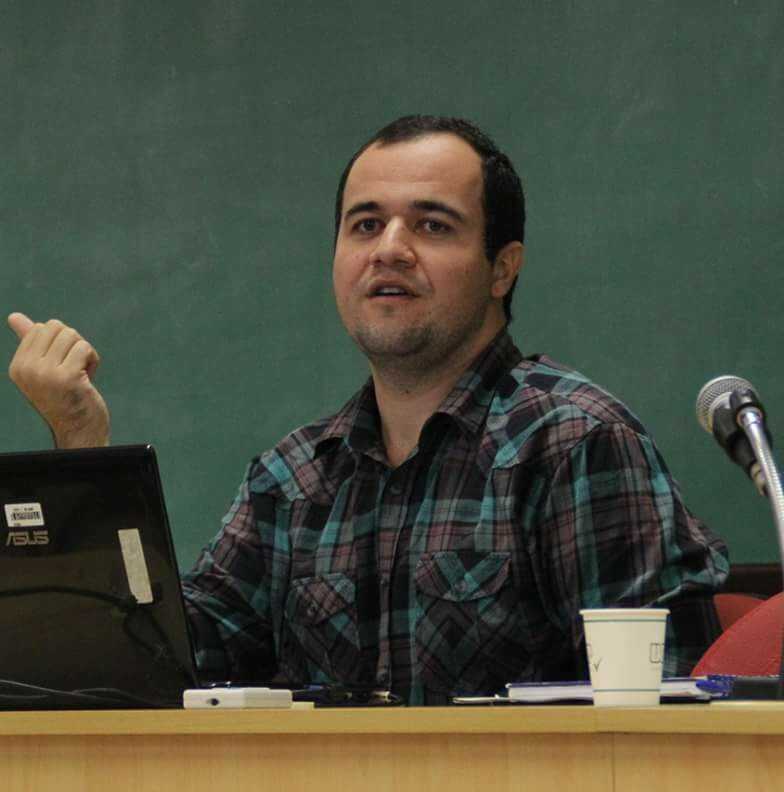
Thiago Meireles
Thiago Meireles is a PhD Candidate in Political Science at University of São Paulo and researcher at Solidary Research Network. His research deals with the impacts of artificial intelligence on the labor market and income inequality. Other research interests also include distributive conflicts and their impacts on inequality as well as methodologies for causal inference.Participants
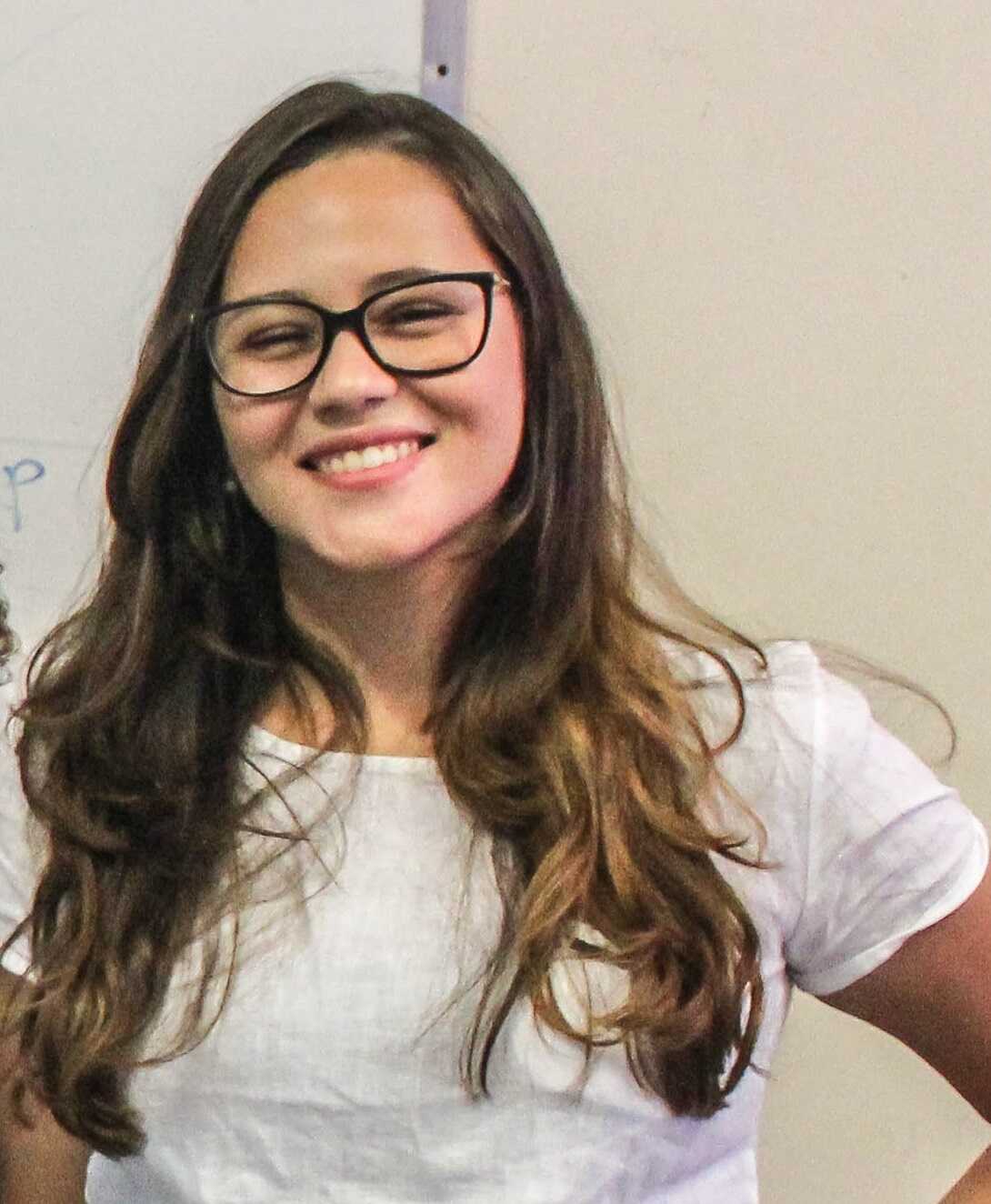
Amanda Domingos
Amanda is a PhD student in Political Science at the Federal University of Pernambuco. Her areas of research have focused on the subnational variation of public policies and distributive politics in Brazilian municipalities. She is also interested in open and reproducible research. And is a co-director of the Métodos em Pauta initiative.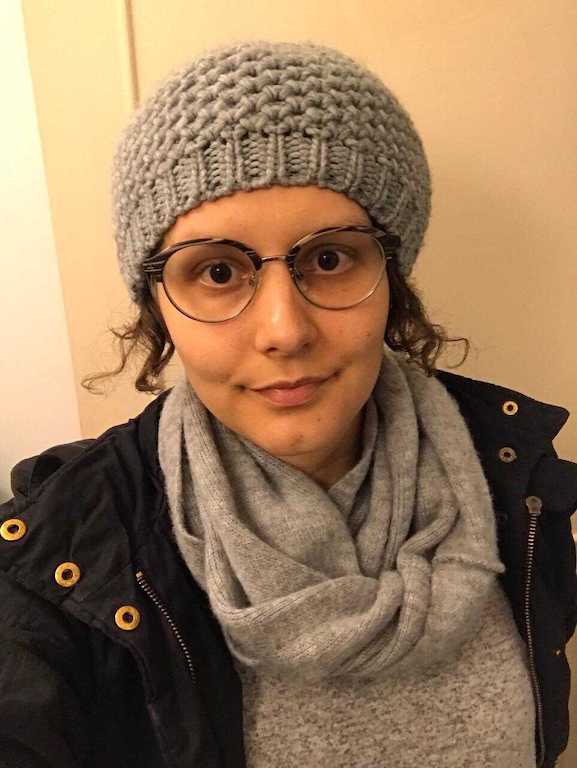
Beatriz Milz
Beatriz Milz is a doctoral student in Environmental Science at the University of São Paulo, in Brazil. Her research is about the transparency of information on water resources management. Beatriz holds an MS in sciences from the Federal University of São Paulo, and a bachelor's degree in environmental management from the University of São Paulo. She is involved with some projects, communities, and events related to the R programming language, such as R-Ladies, Latin-R, useR! 2021, satRday São Paulo, and so on.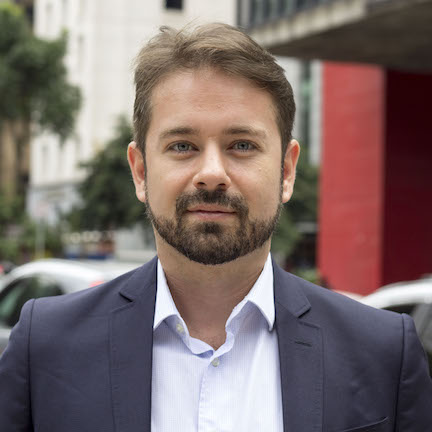
Davi Moreira
Researcher and M&E Specialist. In 2017 I was awarded the CAPES Ph.D. Thesis Prize in Political Science and International Relations. My academic work addresses Political Methodology, Data Science, Text as Data, and Comparative Politics.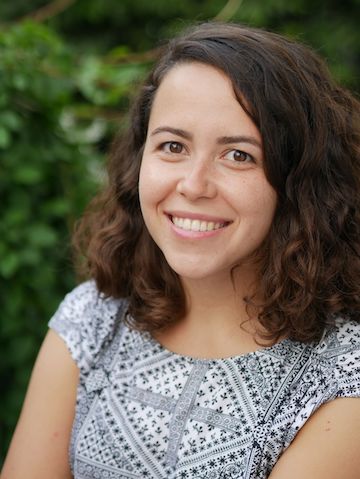
Fernanda Alvares Freire
Fernanda Alvares Freire is currently pursuing a PhD in Ancient History at the University of Münster, Germany. Her research employs Social Network analytical methods to investigate the patterns of social interaction represented in the documents of a large archive of papyri from the 3rd century BCE. She holds a BA and MA degree in History from the University of Brasília, Brazil.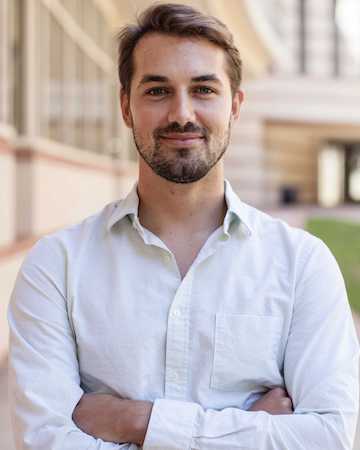
Gabriel Suchodolski
Gabriel L. Suchodolski is a PhD candidate in sociology at UCLA. He is broadly interested in development, politics, and collective action. His dissertation uses comparative-historical methods to explain land titling outcomes in Brazil and India. His other work uses ethnography to understand patronage, contention, and deforestation in the Amazon.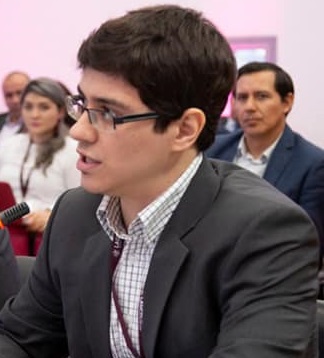
Guilherme Marques
Guilherme Marques is a political scientist, researcher, and consultant at Getulio Vargas Foundation (FGV) and a doctoral student at Brazilian Army Command and General Staff College. His primary research interests concern defense economics, data-driven policymaking, and the interrelationship between military spending and development.
Jonas Araujo
Jonas holds a master's degree in the Graduate Program in Social Sciences at the Pontifical Catholic University of Rio de Janeiro. His main research agenda focuses on the quality of democracy, particularly on the police ombudsman in Rio de Janeiro. He is currently a Ph.D. student at the same program researching perceptions about meritocracy in Brazil.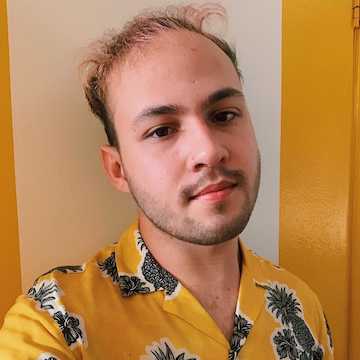
Jean Prado
Jhey! I'm Jean, passionate about data science, strategic communication and in facilitating great conversations. I currently work at Greenpeace Brazil, where I'm responsible for developing audience research and social media analysis. I'm also a co-organizer of R-Ladies São Paulo. I've graduated in Journalism at the São Paulo State University (Unesp) with an exchange program at the University of Victoria (Canada), where I studied media, politics and technology & society. My research interests include social networks, misinformation and audience analysis.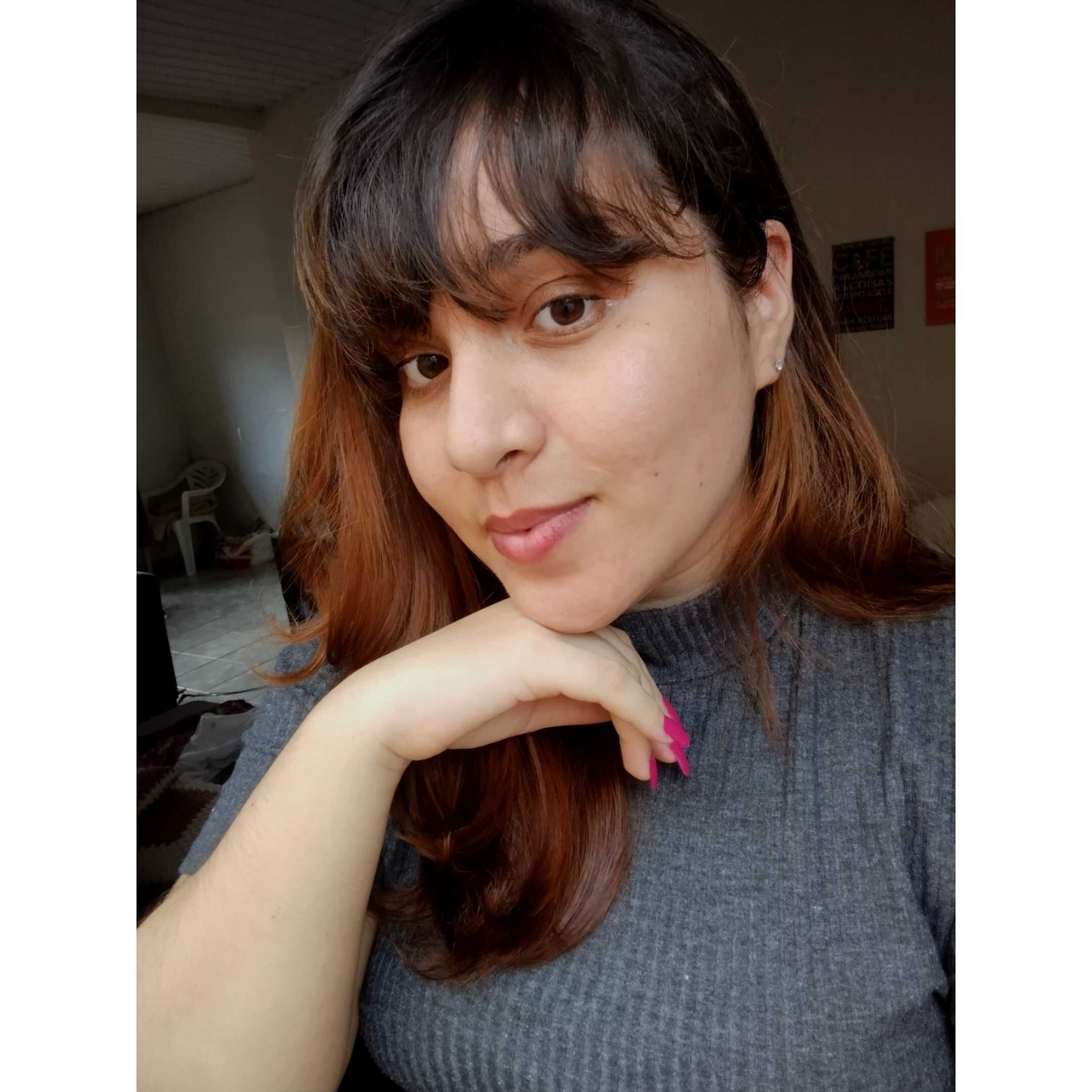
Juliana Brandão
Juliana Brandão is a Graduate Student at the University of Pará at the Economics Post Graduation Program, CAPES scholarship. Also, She has experience in prediction models in the state bank of Pará, and VAR models for comparative analysis in international macroeconomic data and public data, using R and time series econometrics. Nowadays, is a participant in the Social Equity Laboratory of University of Pará, developing models and impact analysis of public policies on income.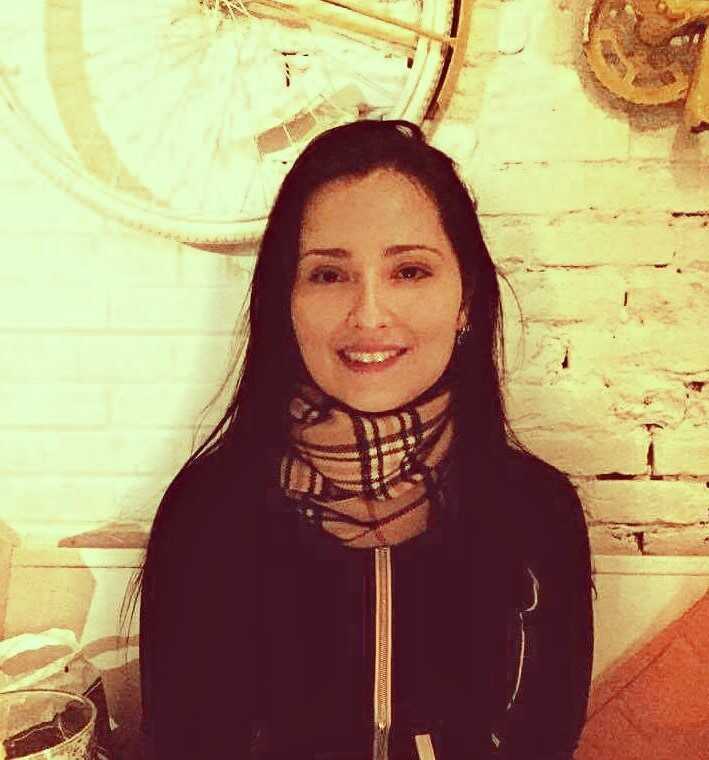
Larissa Galdino de Magalhães Santos
Larissa is a researcher in Digital Policies, Data, and Democracy at CyberBRICS, Faculty of Law of the Getulio Vargas Foundation, Rio de Janeiro. Her research is located in the area of government technology and innovation, with a special focus on open data, smart cities, and political implications. Larissa holds a Ph.D. in Political Science from the State University of Campinas and analyzed open government in the city of São Paulo.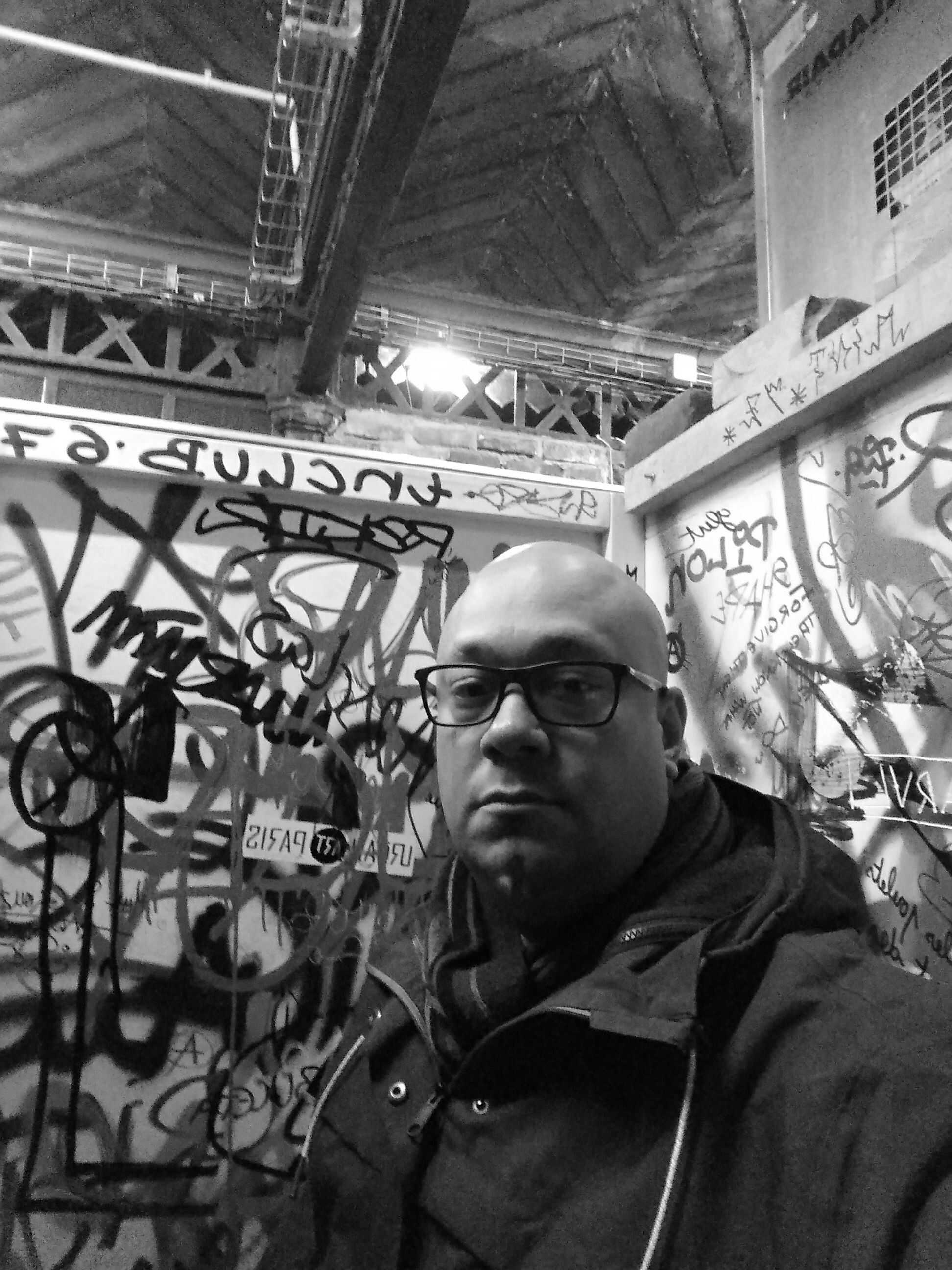
Leonardo Nascimento
Leonardo F. Nascimento is a professor at the Federal University of Bahia where he coordinates the Digital Humanities Laboratory (LABHDUFBA). His research interests include digital sociology, digital humanities and computational social science. He is the author of the book Sociologia Digital: uma breve introdução - EDUFBA - 2020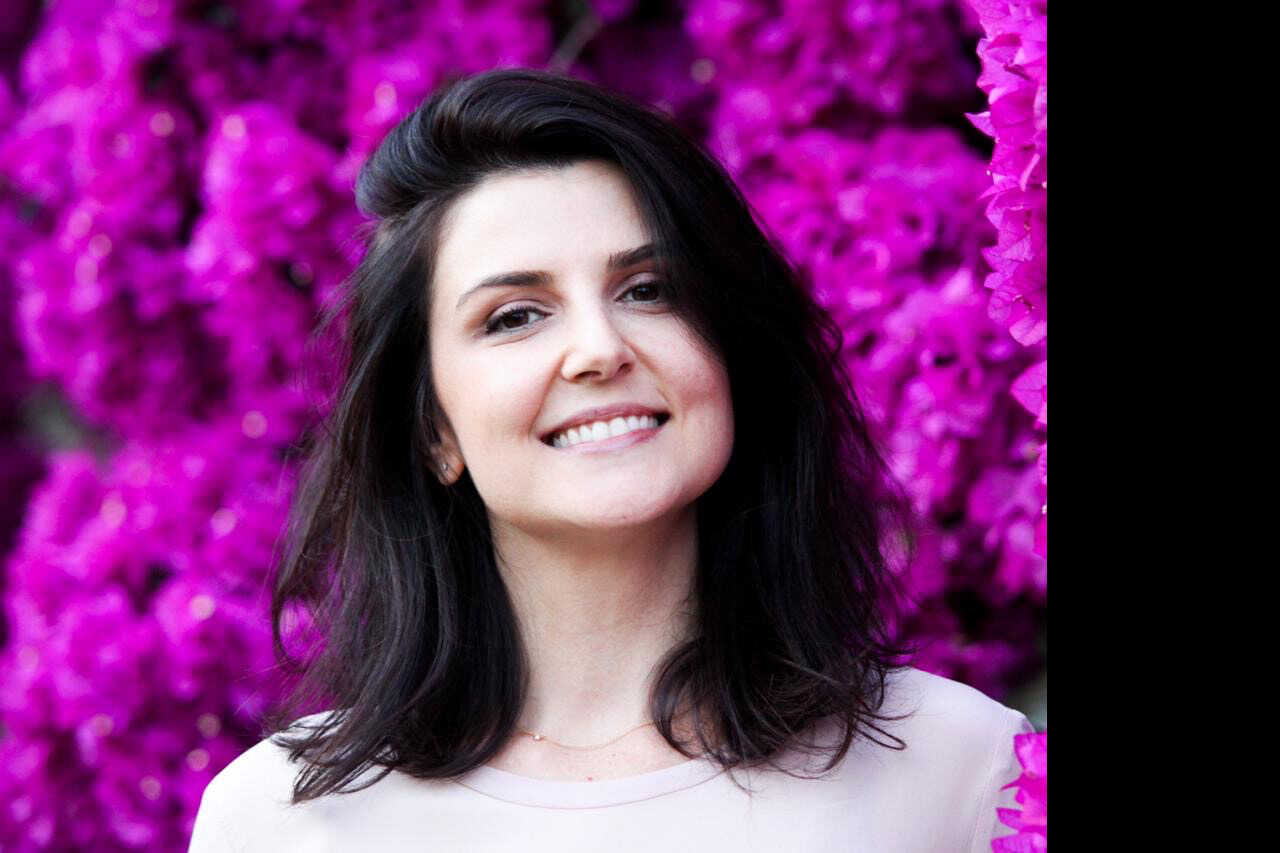
Lorena Giuberti
Lorena is a Phd fellow in Economics at UNU-MERIT/Maastricht University. She holds an MA and a BA degree in Economics from the University of Brasilia, Brazil. Her research examines the impacts of technology and automation in decision-making and their implications for policies, using experimental and quasi-experimental approaches. Prior to her doctoral studies, she served at the Secretary of Trade in Brazil for more than 5 years.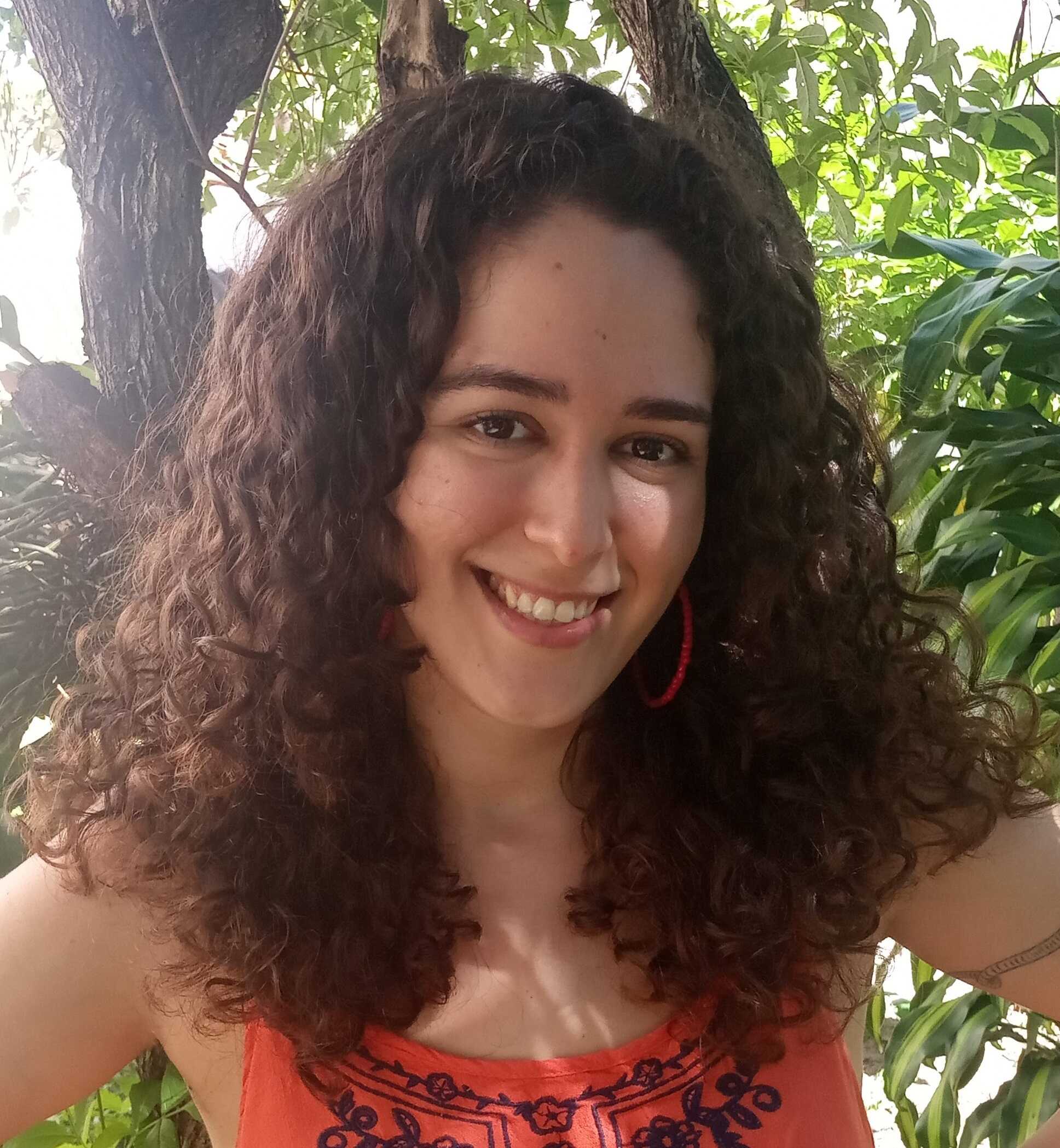
Luana Calzavara
Luana Calzavara is a PhD student in Political Science at State University of Rio de Janeiro (UERJ). She holds a BA in Social Sciences in Federal University of Rio de Janeiro, and a MSc in Political Science at UERJ. Her research interests includes electoral systems and party systems, with focus on party fragmentation of Brazilian National Congress.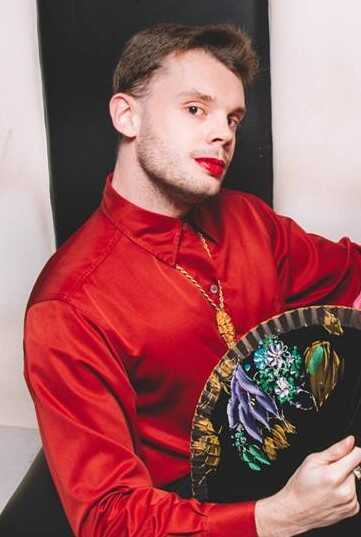
Luiz Paulo Carvalho
My name is Luiz Paulo Carvalho and I am a PhD student in Informatics at the Federal University of Rio de Janeiro (UFRJ). Currently researching Computational Ethics and Ethics of Resistance, my scope is to analyze, evaluate and improve the Ethics and Computing scenario in Brazil, with social justice, inclusion, sustainability and human emancipation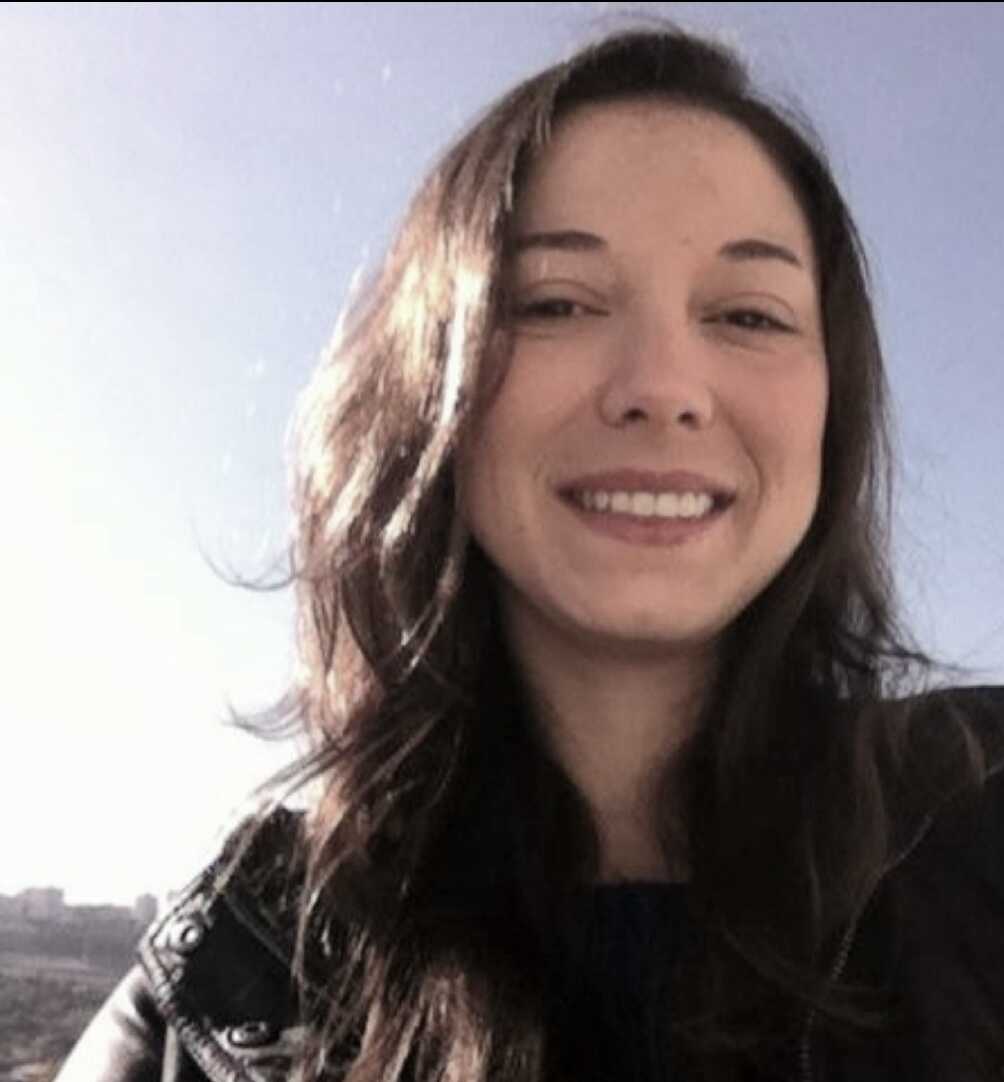
Marcela Canavarro
Marcela Canavarro is a researcher at FGV DAPP. Her background is in Journalism, having worked for different media outlets in Brazil and abroad. She has applied computational methods to her doctoral research, focused on networked political mobilization, and is now interested in internet regulation and political economy approaches to data, platformization, and digital labor.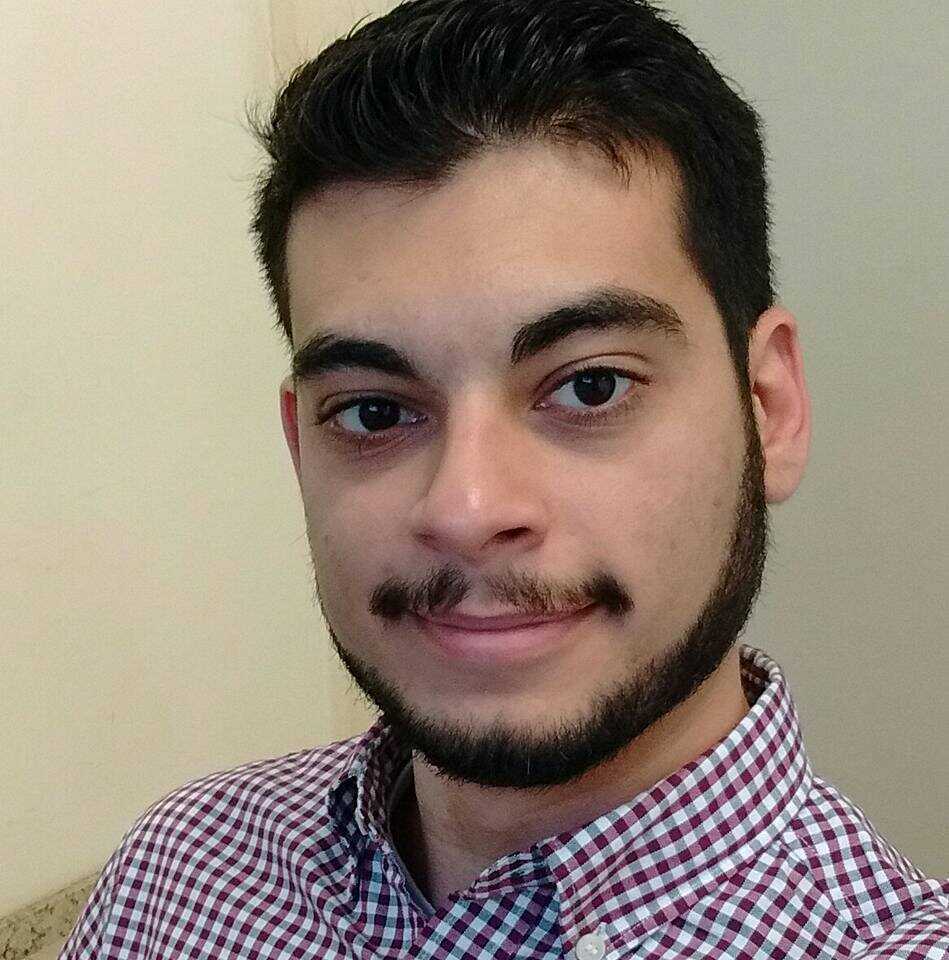
Marcelo Alves
Professor at the Superior School of Propaganda and Marketing and associated researcher at Lamide (Media & Democracy Lab). Marcelo holds a doctoral degree in Communication from the Fluminense Federal University, Rio de Janeiro. He has published original papers on on several journals, including Information, Communication and Society and New Media and Society, focusing on political communication, digital culture and datafication. Recently he was co-author of an article on Brazilian alternative media, published in TripleC. He is the author of the book #VaipraCuba: a gênese das redes de direita no Facebook, which investigates the early formation of far-right movements during the Brazilian presidential election of 2014.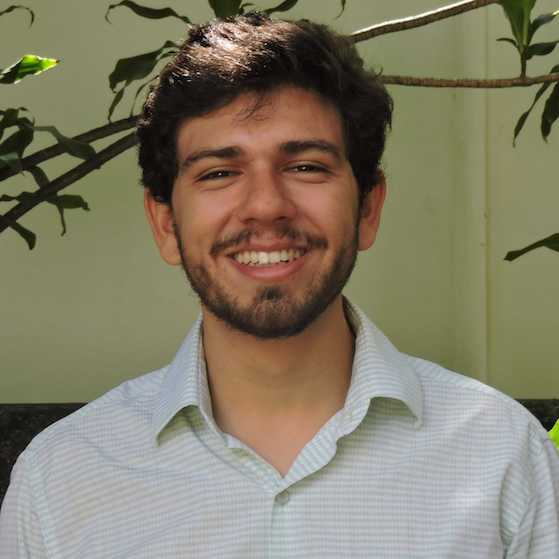
Marcus Torres
Marcus is a Ph.D. student in Political Science at the Federal University of Pernambuco. He researches political determinants for local social outcomes. He is particularly interested in applying text-as-data analysis, machine learning, and network analysis to measure and analyze political dynasties' effects on gaining federal resources in Brazilian municipalities.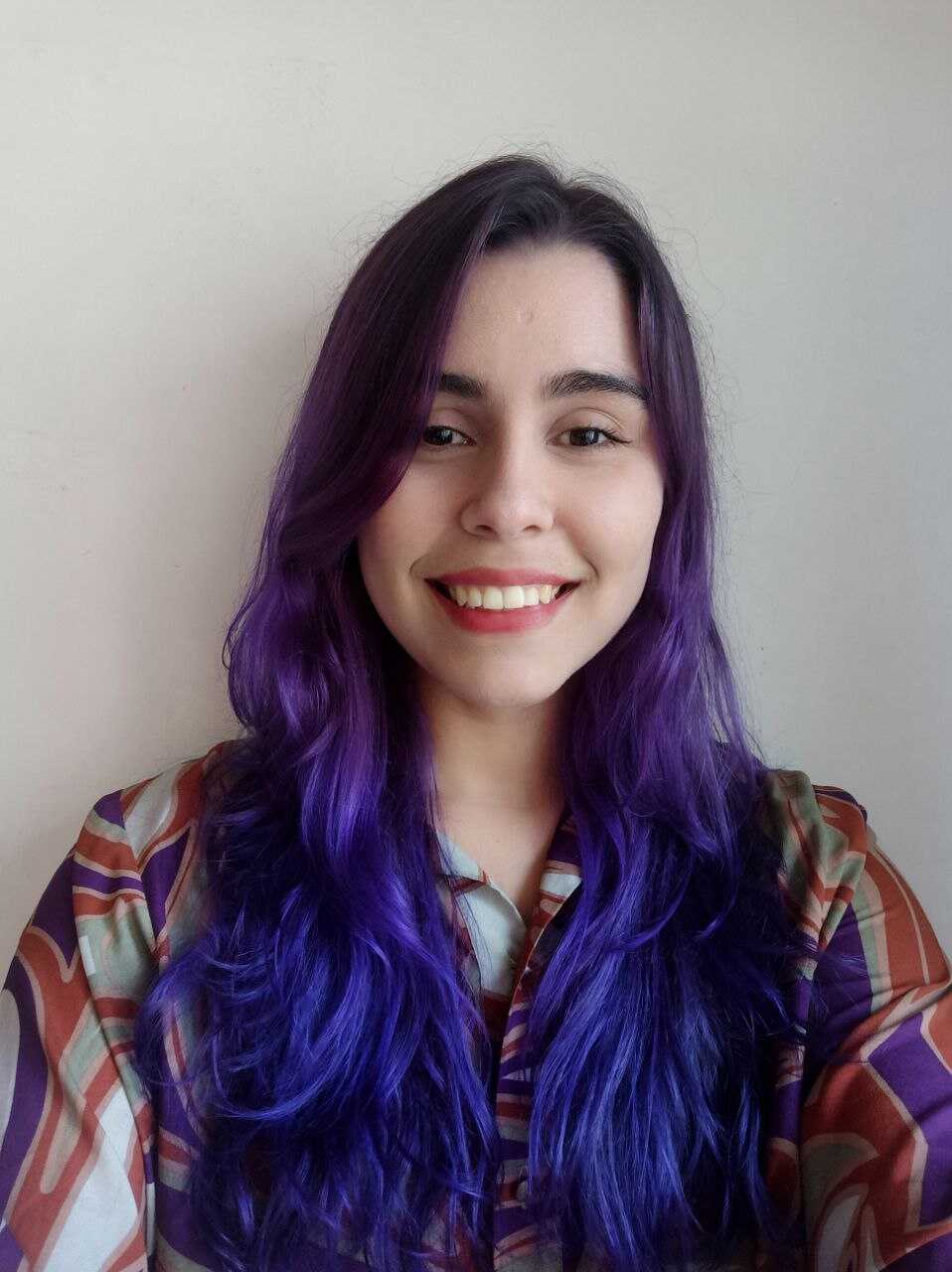
Marina Merlo
Marina Merlo is currently pursuing a PhD in Political Science at University of São Paulo Her work covers gender inequality in democracy, focusing on political parties, and currently investigates how the new technologies of communication might have changed democracy and political participation. Natalie received her BA in Social Sciences and MSc in Political Science from University of São Paulo.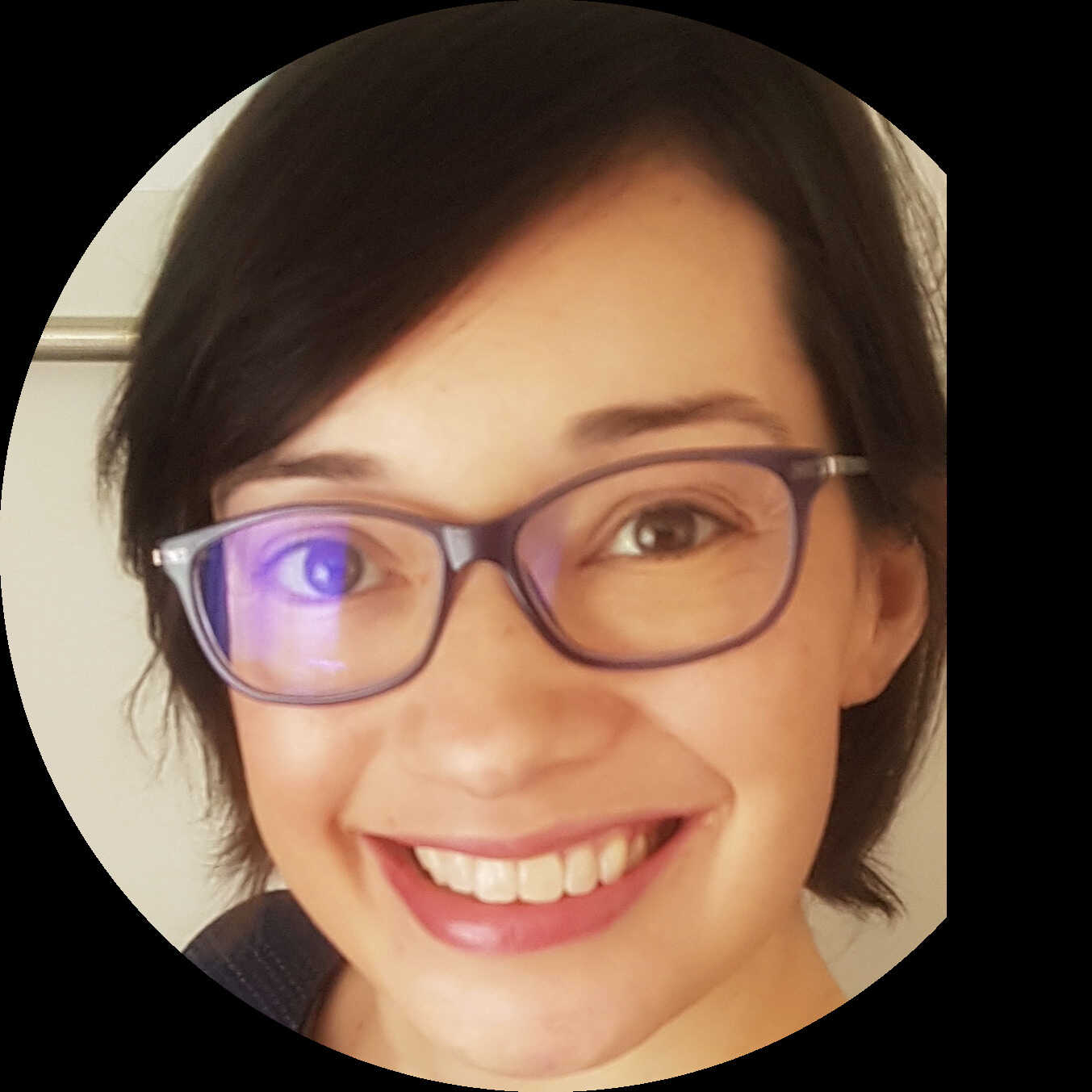
Marisa Vasconcelos
Dr. Marisa Vasconcelos is a research scientist at IBM Research in Brazil. Her research focuses on societal problems such as misinformation dissemination, hate speech, and underrepresented minorities. She co-authored several papers analyzing misinformation dissemination on WhatsApp groups during the Brazilian elections.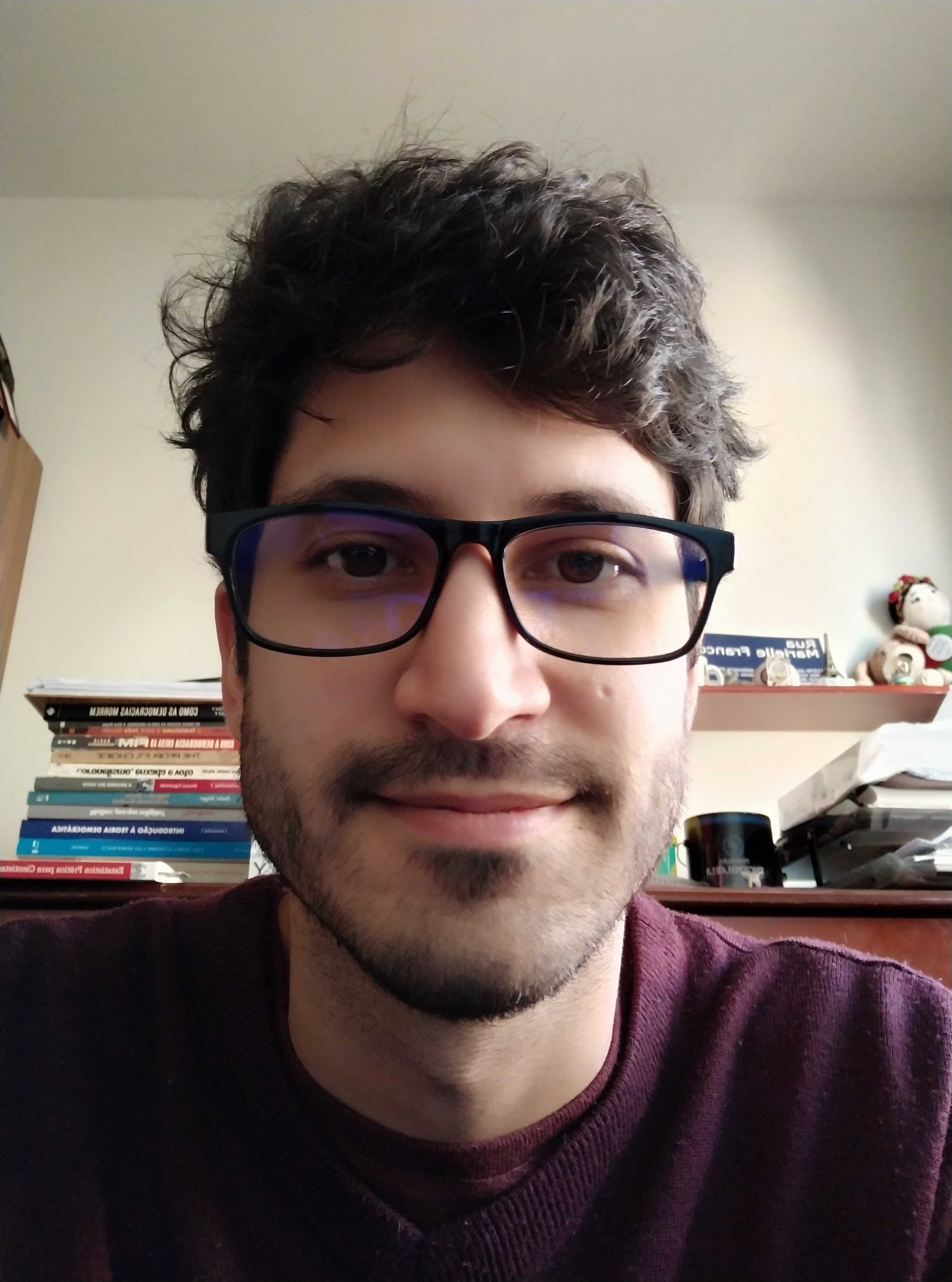
Matheus Ferreira
Matheus Ferreira is a PhD candidate in Political Science at the Federal University of Minas Gerais, where he is also affiliated with the Center for Political Behavior Studies (CECOMP). Him current research examines the evangelical vote for Bolsonaro in 2018 Brazilian elections. He holds a B.A. and M.A. in Social Science from the Federal University of Juiz de Fora.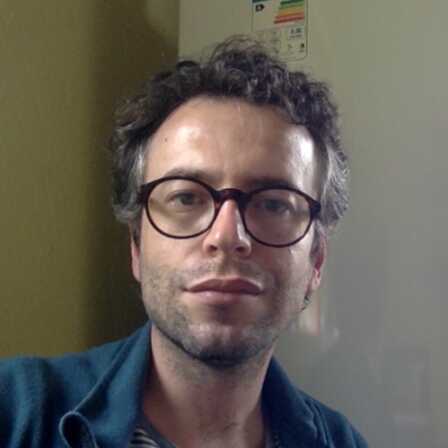
Nicolás Llano Linares
Nicolás Llano is a graduate student in the MBA Data Journalism program at the Brazilian Institute of Education, Development and Research (IDP). He received his PhD and M.Sc. in Communication Sciences from São Paulo University. He was an exchange student at the University of Copenhagen in the Department of Film and Social Sciences, and a participant of the first Code Societies course at the School for Poetic Computation. His current research focuses on media infrastructures, datafication and civic tech. His past research examined the effects of the mediatization of cultural fields on the creation and management of media capital, specifically on urban food networks.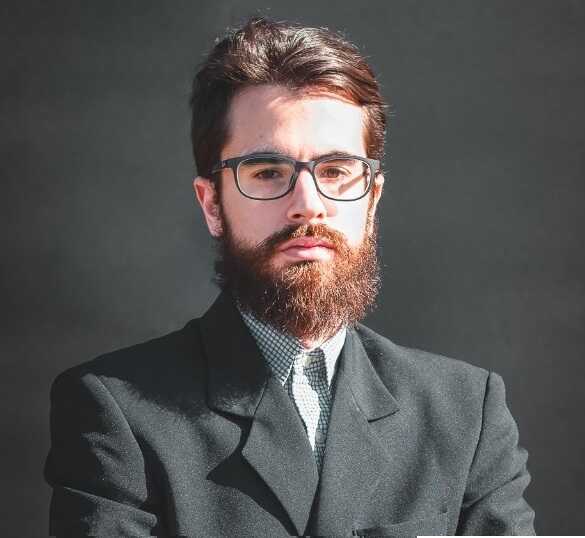
Otávio Vinhas
Ph.D. Student in Information and Communication studies at University College Dublin. Researcher at the MIDIARS research lab.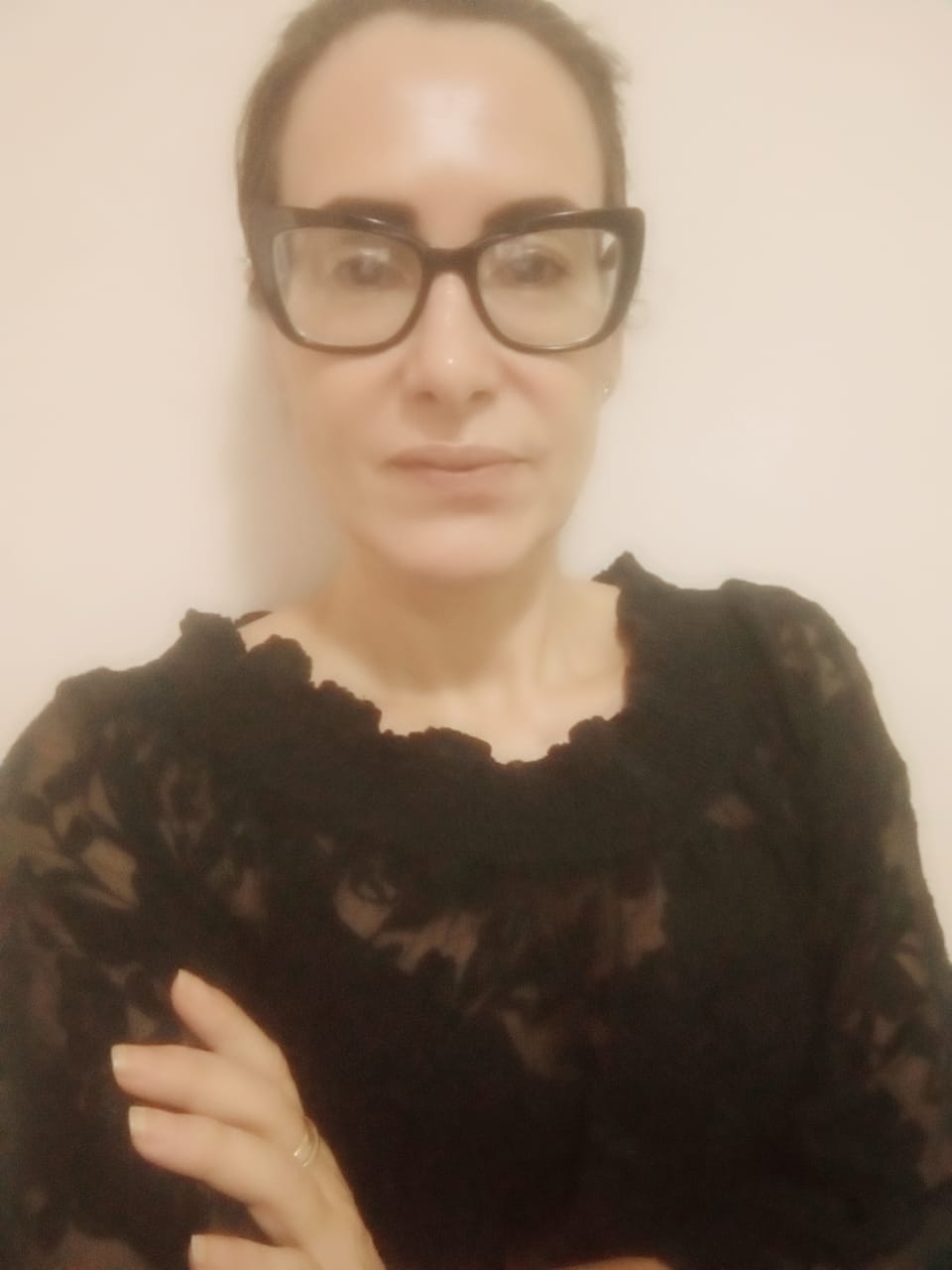
Paola Guerra
Lawyer and university professor. Master's and Doctorate in Law from PUCSP. PhD from the Università del Salento (Italy). Post-doctorate from EGS/Switzerland, from the University of Coimbra, CES, from the Law School of USP, and from PUCSP- TIDD. Collaborating researcher at UNICAMP, IEA/USP, Lawgorithmics, Advanced Institute of AI, and LGPD. Visiting fellow - European University Institute /It. Visiting researcher - Scuola Normale Superiore de Pisa - Italy and University of Lisbon/Pt. Post-doctoral student - New Technologies and Law - PROGRAMMA DI POST-DOTTORATO, unirc.it.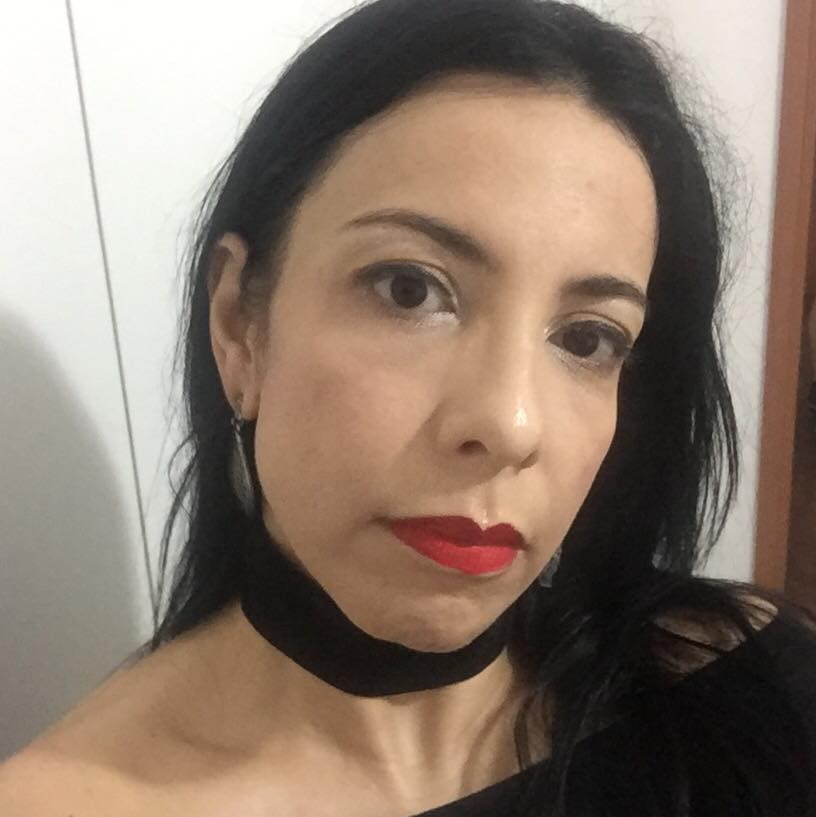
Patricia Pavessi
Antropóloga, Docente e Pesquisadora dos DCSO e PGCS /UFES, coordenadora do Laboratório de Estudos de Identidades e Tecnologias (LEIDTEC/UFES), integrante do Grupo Interinstitucional de Estudos de Cibercultura e do Grupo Estudos do Consumo. Tem experiência e interesse em Etnografia Digital e Computacional, Ciência Social Computacional, Consumo de Tecnologias de Informação e Propaganda Computacional.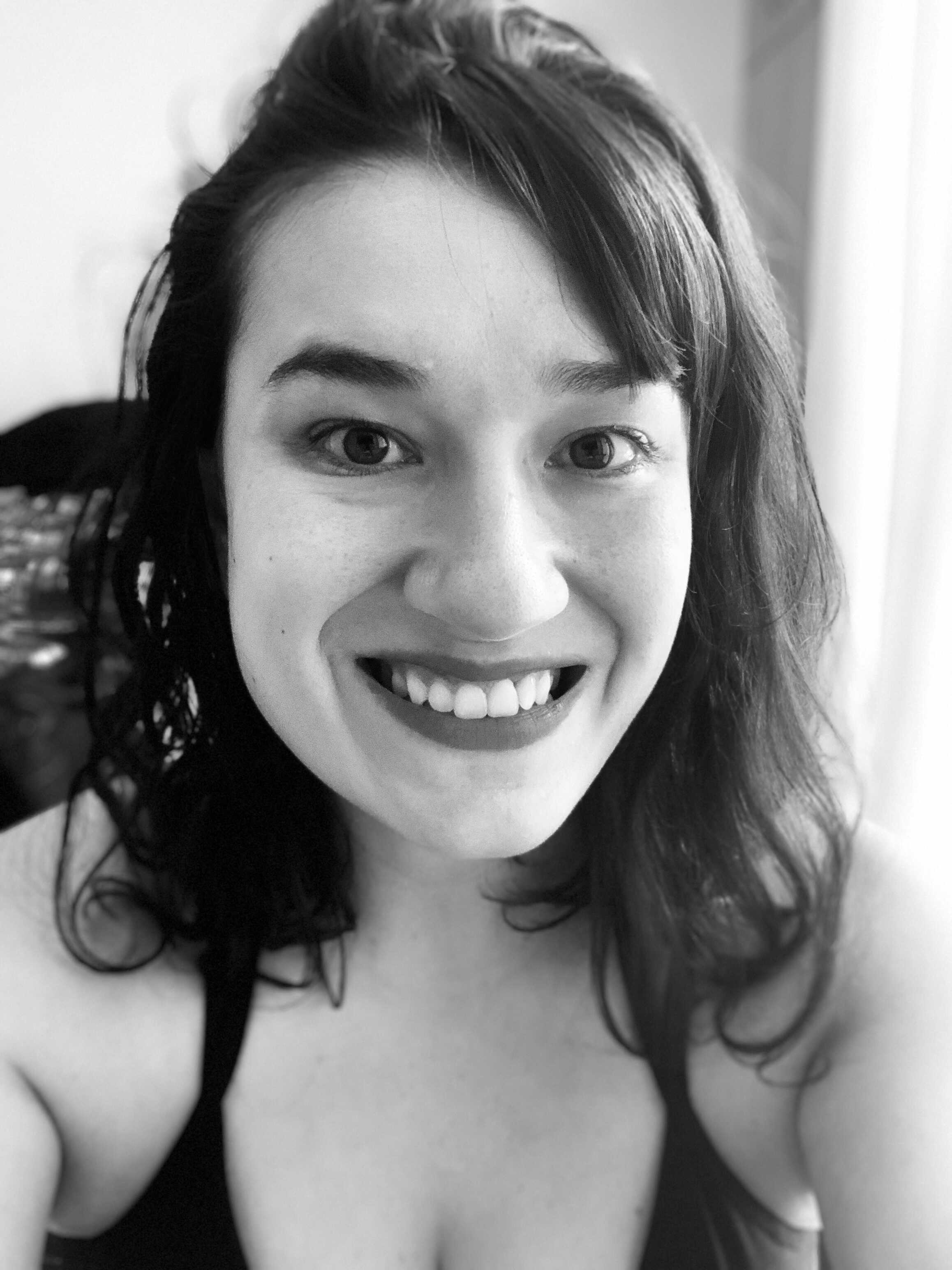
Tanise Brandão
Tanise Brandão Bussmann is Professor of Macroeconomics at Federal University of Pampa, but currently works at the department of Economic Studies at the Brazilian Antitrust Authority (CADE). Previously made a bootcamp of webdevelopment and now is in a data science bootcamp. Like working with brazilian databases, specially with microdata, like Census and PNAD.